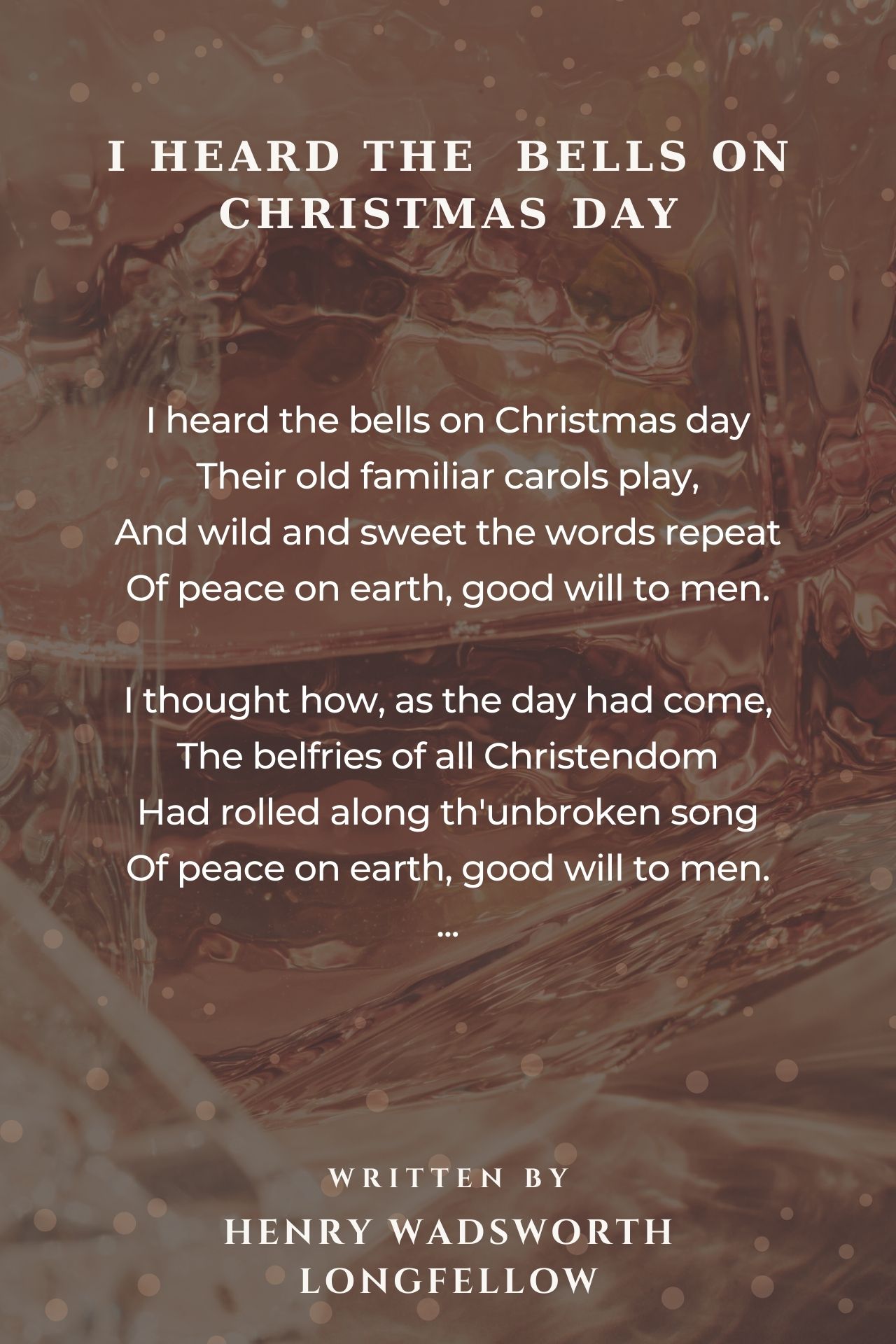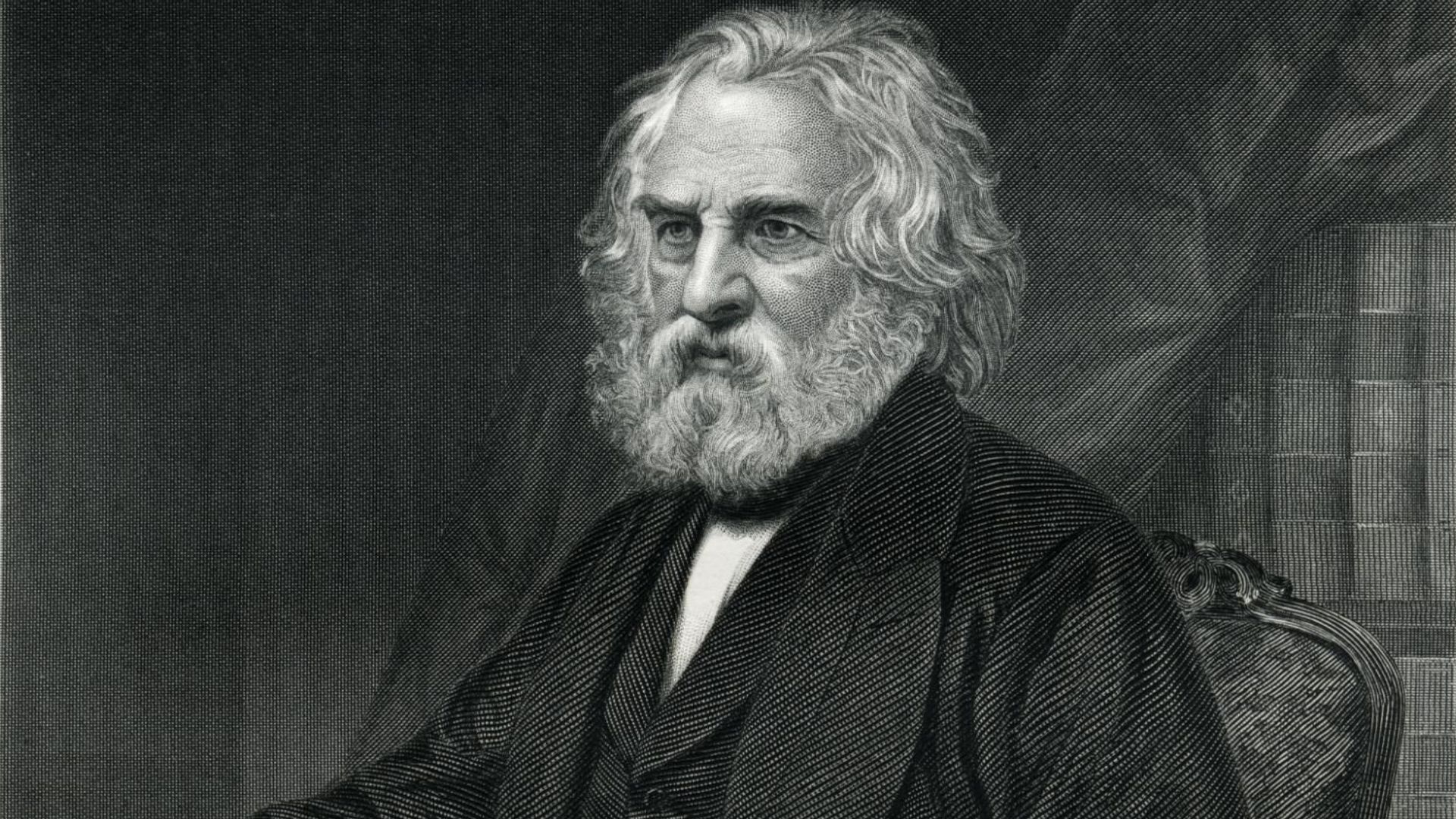I Heard The Bells On Christmas Day Poem by Henry Wadsworth Longfellow
I Heard The Bells On Christmas Day
I heard the bells on Christmas day
Their old familiar carols play,
And wild and sweet the words repeat
Of peace on earth, good will to men.
I thought how, as the day had come,
The belfries of all Christendom
Had rolled along th'unbroken song
Of peace on earth, good will to men.
And in despair I bowed my head:
'There is no peace on earth, ' I said
'For hate is strong, and mocks the song
Of peace on earth, good will to men.'
Then pealed the bells more loud and deep:
'God is not dead, nor doth He sleep;
The wrong shall fail, the right prevail,
With peace on earth, good will to men.'
Till, ringing, singing on its way,
The world revolved from night to day
A voice, a chime, a chant sublime,
Of peace on earth, good will to men.

Good prosody, but rotten content. I am not interested in poetry which peddles myth. We got rid of classical myth in poetry because we ceased to believe in it, why should the Christian myth be treated differently?
And in despair I bowed my head: 'There is no peace on earth, ' I said 'For hate is strong, and mocks the song Of peace on earth, good will to men.' a great truth.. as history can prove it..
Nothing about love here very interesting was it not the done thing to mention or with peace and goodwill shows love. Another abstract that will follow the mood of history.
Who hasn't gone through the holiday season with a heavy heart? Longfellow heard the bells in spite of the gloom he felt. He's not preaching religion, but sharing his conflicted experience.
Beautiful poem that echoes the music and chant of peace on earth and goodwill among men.
Love this poet, like the thunderig, river, akin to the English, romantic poets
The bell of truthfulness must ring naturally and everyone will hear truly

'I Heard the Bells on Christmas Day' by Henry Wadsworth Longfellow is obviously from the title, a poem with a theme connected in some way to the birth of Jesus Christ. The first stanza immediately declares the main theme ‘Of peace on earth, good will to men.’ Longfellow beautifully introduces this theme with bells, carols, wild and sweet words to promote the true meaning of Christmas. The second stanza relates how ‘The belfries of all Christendom/ Had rolled along th'unbroken song’ which actually means peace and good will to all people on earth. A noble ideal and goal for all humanity. This sentiment therefore sets up the sad reality in the third stanza that this peace is still unrealized with the words ‘And in despair I bowed my head: / 'There is no peace on earth, ' I said/ 'For hate is strong, and mocks the song’. The fourth stanza celebrates faith in the promise that justice will triumph, boldly proclaimed with ‘Then pealed the bells more loud and deep: / 'God is not dead, nor doth He sleep; / The wrong shall fail, the right prevail, ’The entire final stanza and the fourth line of every stanza celebrates the theme ‘Of peace on earth, good will to men.’ Is the theme of peace and good will to all people ‘rotten content’? To those suffering from oppression or victims in wars globally obviously it is not. Myth is “a traditional story about heroes or supernatural beings, often attempting to explain the origins of natural phenomena or aspects of human behavior”. Jesus Christ is a prophet or the son of God and more in the belief and faith of two major world religions. One fact is clear, Jesus was a real person who was born, lived and died in disputed circumstances; several major Roman historians even attest to the truth of these historical facts. Fact not myth. The fact Jesus is a major historical religious figure, believed in by several billion people in two major religions, in different ways in many denominations; history, religion, not mythology, answers the question of why themes connected with this name continue to appear in poetry. Hindu, Buddhists, Jews etc also enjoy their right to write about their religions. Therefore who is the ‘we’, who do not believe? A minority called atheists who BELIEVE their is no God. This BELIEF in no God, is actually a religion of denial. A belief resolute in believing there is no God. Only an agnostic who believes the existence or non-existence of any deity, is unknowable and unprovable and does not have any belief; actually has no religion.